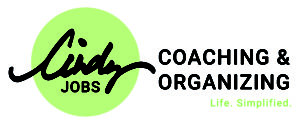Is it just me or are you sometimes perplexed by how your co-workers operate?
As a manager in a large corporate environment, I sometimes found myself completely confused by the actions of others and struggled to rationalize behavior that was so foreign to my own.
For example:
- One of my team members was incredibly good at her job but somehow was always on coffee breaks. She spent an excessive amount of time away from her desk, but our team always knew things WAY before the “official memo” came out. (She was an “Inspirer”. DISC)
- One of my colleagues never spoke up in meetings, but had a memory like a steel trap and was one of the most insightful people I’ve ever worked with. (She was an “Introvert.” Myers-Briggs)
- Another colleague appeared always to be bending over backward to help others, sometimes at the expense of his duties. (He was an “Obliger.” Four Tendencies)
- I found myself struggling when asked to look at “the big picture when my strengths were in different areas (My strengths were in strategy and discipline. StrengthsFinder 2.0)
- I have a colleague that serves on a non-profit board with me. She appreciates the verbal acknowledgment of her contributions far more than a Starbucks gift card. (Her appreciation language is Words of Affirmation. 5 Languages of Appreciation)
Some employers understand that exploring the styles and personalities of our co-workers helps to foster a happier and productive working environment. Others do not.
What can you do to create this understanding on your own? Over the past several years I’ve asked my clients to learn more about themselves and their circle of family, friends, and co-workers, enabling them to be better partners in those relationships. Here are some of my favorite tools:
“The DISC model can help you understand yourself and others by describing four main, or primary, behavioral styles. However, each person can, and likely will display some of all four behavioral styles depending on the situation.” — DISC website
“Do you have the opportunity to do what you do best every day?
Chances are, you don’t. All too often, our natural talents go untapped. From the cradle to the cubicle, we devote more time to fixing our shortcomings than to developing our strengths.” — Gallup Press
The 5 Languages of Appreciation at Work:
“The key to enjoying your work is whether you feel valued and appreciated by those around you. Learn how to communicate authentic appreciation in the ways meaningful to your coworkers.” — AppreciationatWork.com
If your employer is not 100% on board with the value of understanding ourselves and our co-workers, I encourage you to take on the task yourself. You will be creating more healthy and productive relationships.
Cindy Jobs, COC, ACC
Looking for more information?
Click here for 15-minute organizing tips.
Click here to schedule a complimentary breakthrough session.
For more helpful information, follow me on Facebook.



Attention Deficit Disorder Association
National Association of Productivity & Organizing Professionals, Seattle Chapter Vice-President
International Coach Federation
Institute for Challenging Disorganization
Level I Certificates earned in Chronic Disorganization; ADD; Client Administration; Time Management; Mental Health; and Hoarding.
Level II Specialist Certificates earned in Chronic Disorganization and ADHD.







